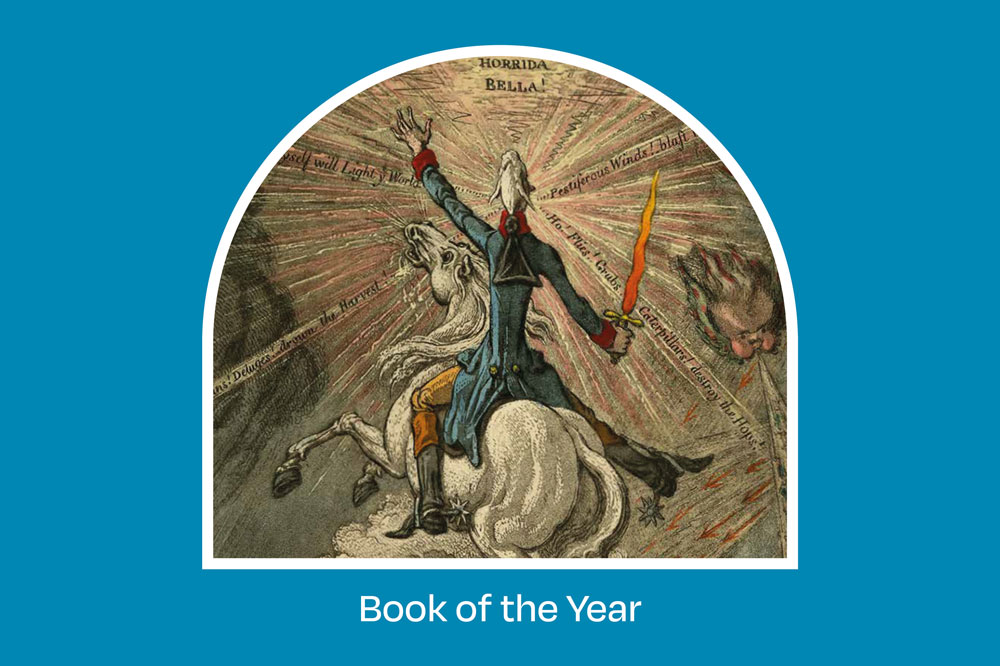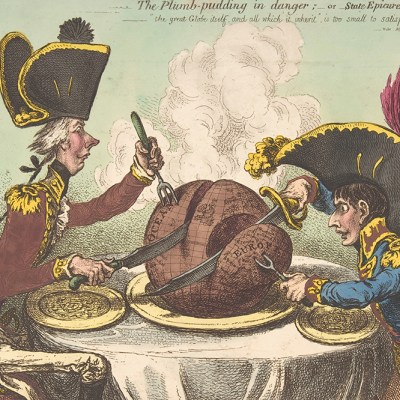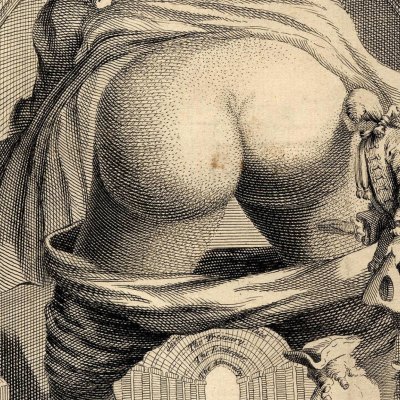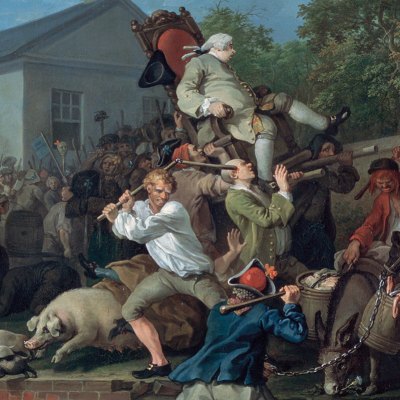James Gillray: A Revolution in Satire
Tim Clayton
Paul Mellon Centre for Studies in British Art
Political satire is by its nature ephemeral: it reacts to events and personalities and moves quickly on. Yet James Gillray’s (1756–1815) excoriating attacks on William Pitt, Charles James Fox, George III, the Prince Regent and a whole cavalcade of Georgian public figures retain their sting more than two centuries after he dreamed them up. In his sumptuously illustrated study of Gillray, Tim Clayton explains why.
Gillray was, shows Clayton, as much an artist as a caricaturist – his fertile wit and invention were equalled by his facility with an etching needle. His images reveal a man of learning, liberal with allusions in his prints to Shakespeare, Milton and the classics, who developed a style that combined the literary and the visual. His seven years at the Royal Academy, meanwhile, helped shape him into one of the most accomplished draughtsmen of the early 19th century.
Although Clayton takes Gillray from his early training as a letter engraver through his time as a travelling player and into his pomp and then the madness that blighted his later years, this is not a biography in the traditional sense. There are few documentary sources relating directly to Gillray, so Clayton skilfully reveals his man through examining the ‘business of satire’. He looks at Gillray’s often overlapping professional and personal relationships, at the intricacies of Georgian print culture, and the ebbs and flows of politics. He shows the caricaturist as an entrepreneur and examines his role as perhaps the nation’s most important propagandist during the Napoleonic wars.
While Gillray’s lampoons are regularly scatological and savage they do not, says Clayton, necessarily reflect the personality of their creator. They are often thoughtful and occasionally lyrical, too.
Clayton has written a scholarly, revealing and frequently diverting study of an artist who made satires for every strata of his society, many of them indelible, and not one of them dull.
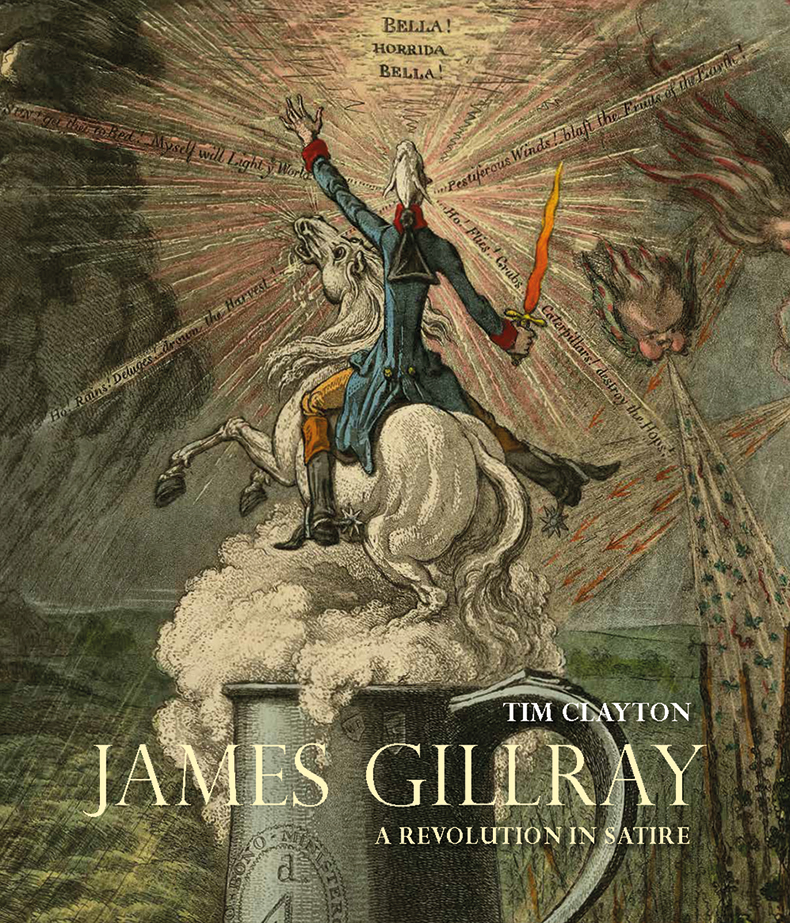
Michael Prodger is a senior research fellow at the University of Buckingham and art critic for the New Statesman.
